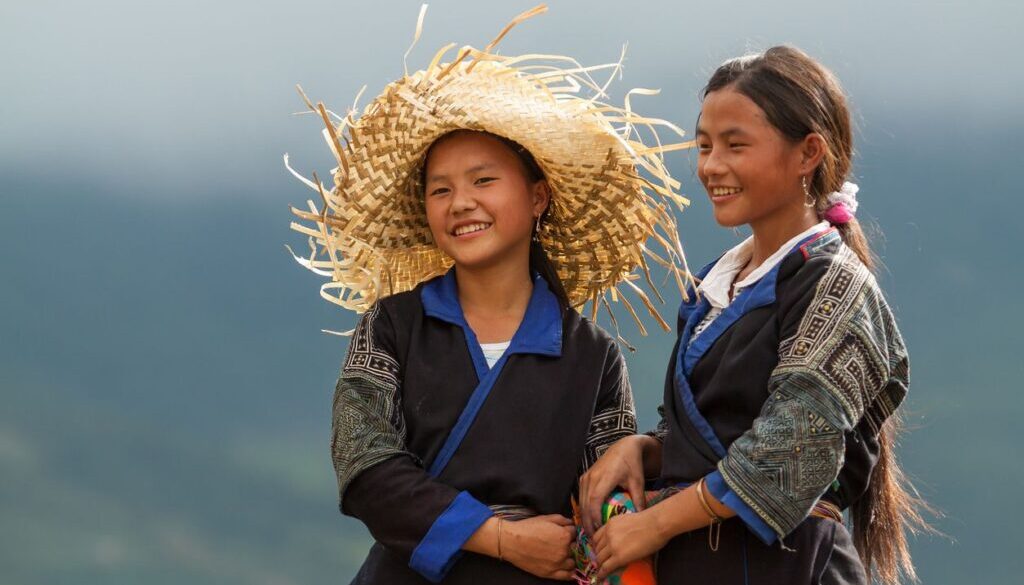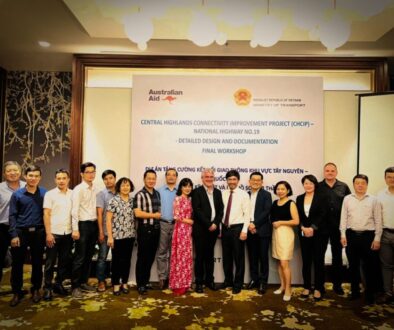Mainstreaming GESI in the transport sector
IN BRIEF
In its desire to promote economic growth, reduce poverty and ensure sustainable development, the Government of Vietnam is putting a stronger focus on ensuring its gender equality priorities, objectives and strategies are known and applied.
Aus4Transport is supporting the Ministry of Transport to raise, within the transport sector, the understanding of Gender Equality and Social Inclusion (GESI) issues, requirements and benefits, and to ensure these concepts are systematically incorporated into transport infrastructure projects across the country.
Find out the many ways in which Aus4Transport is promoting GESI in Vietnam.
KNOW MORE…
As an Australian Government initiative, Aus4Transport prioritises GESI as a cross-cutting issue across all its activities as a mean to contribute to sustainable development. To achieve inclusive growth and establish a peaceful society, disparities between females and males and different socials groups need to be recognised and addressed.
The Ministry of Transport is showing its firm commitment to mainstream GESI in the transport sector. Unfortunately, the lack of gender data in Vietnam, and the absence of clear understanding and guidance, leaves MOT officers, investors, local authorities and PMUs with limited capacity to understand and implement GESI requirements in transport projects.
Aus4Transport, in its partnership with MOT, has been supporting many GESI initiatives across all the activities of the Program.
STREAM A – Facilitating National Transport Projects
Aus4Transport’s efforts have helped to ensure the Program’s two largest engineering activities (the Central Highlands Connectivity Improvement Project and the Northern Mountains Provinces Transport Connectivity) are gender responsive. Gender transport surveys have been conducted to better understand the differences between men and women, abled and disabled, and young and older road users in regard to mobility needs and transport uses. This information has been crucial to support the development of a gender responsive and socially inclusive Detailed Design. Among others, it has been used to optimize location of lighting, bus stops and pedestrian crossings and to inform the design of a Road Safety awareness campaign.
The Program has also kept in mind the social risks posed by construction projects, as they usually require large, temporary workforces, which, in some cases, can lead to an increase in gender-based violence. To support the contractor in identifying and managing these risks, Aus4Transport prepared a Guidance Note on Management of Social Impact of Temporary Project-Related Labour Influx. The document included a range of strategies to mitigate social impact, including gender-based violence. It also provided direction on how to establish an appropriate referral mechanism for gender-based violence grievances and how to develop and implement suitable workplace policies and procedures to prevent these risks.
In the Northern Mountains Provinces Transport Project, Aus4Transport identified women and girls as being more vulnerable to the spread of HIV/AIDS, human trafficking and road accidents. With the intention of helping to raise awareness and reduce the risk, the Program is currently supporting the design of a HIV/AIDS and Human Trafficking Awareness Campaign and a Road Safety Awareness Campaign, which will be implemented throughout the project’s construction period.
STREAM B – Unlocking opportunities through innovation
Aus4Transport is also excited about the positive progress of the Program’s specific GESI activity, Capacity Building on Gender Equality and Social Inclusion and Sustainable Project Management in the Transport Sector. This key activity aims to build the capacity of transport sector professionals to mainstream GESI issues when preparing, designing and implementing transport infrastructure projects.
The Program is directly working with the Institute of Transport Administration and Management Cadres (ITM) to raise awareness, improve skills and build motivation for MOT staff to address GESI issues in line with the Gender Action Plan developed by the Committee for the Advancement of Women (CFAW). Through a series of training courses, delivered by Queensland University of Technology (QUT), the activity will train around 400 participants and, most importantly, facilitate the adoption and integration of the training modules into ITM regular training curricula. It will provide the tools and means for MOT staff to apply their newly acquired knowledge and skills to the projects they are responsible for, ensuring a more sustainable and inclusive project management.
All training materials have already been finalised and ITM lecturers have successfully completed a short online course introducing them to the concepts of Gender, Disability and Social Inclusion. Eight more training courses are scheduled to start in March 2021, after the upgrade of ITM’s training facilities.




